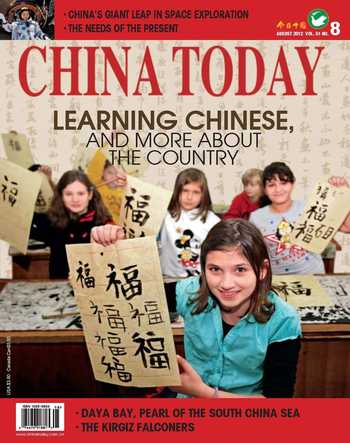LETTERS
Thanks to better nutrition, improved clinical solutions and more state spending on healthcare services, China is seeing a healthier generation growing up. However, that healthcare services are being commercialized too quickly has become a top concern for hospitals. Average household healthcare expenditure gets higher and higher. The government is exploring solutions and has tried to keep medical costs within the reach of ordinary people, offering special assistance to disadvantaged groups, and building more health centers in remote areas. But these moves should be kept under close supervision to ensure they are properly implemented. As is the case for Chinas economy in general, Chinas healthcare sector needs further reform. More favorable policies should also be drafted for private clinics. In a properly regulated market economy, greater competition improves the quality of services and lowers prices. The healthcare sector is no exception.
Yu Jun
Jilin Province, China
My wife and I are going to take our first trip to China this October. But we knew little about the country, so we turned to your magazine a few months ago. After reading articles that cover almost all fields of life, we feel we have a knowledge and understanding of Chinas people, and their customs and stories. Im sure visiting the country personally will be an exciting and impressive experience. We are looking forward to the trip!
John Myers
Canada
Im really delighted to see an article about India in the July issue. India is also an emerging economy and has a long history of cultural exchanges with China going back to ancient times. In modern times, however, the two countries have seen fewer exchanges for various reasons. Although Indians have mixed feelings about China, I think India can become another destination for Chinas investment given the financial turmoil in Europe and political disturbances in the Middle East. Complementary economies, short transportation distances, Indias eagerness for financial resources and Chinas abundant foreign reserves are all driving forces. In addition, Chinese tourists increasing interest in the birthplace of Buddhism calls for more reporting on India. Although many of Chinas neighboring countries have seen a big influx of Chinese tourists in recent years, India is yet to become a tourism hot spot. But the country has the potential, considering its diversified and exotic cultures. Chinese people are starting to cast a curious eye on their neighbor.
Du Juan
Beijing, China
On the issue of the survival of folk operas in modern times I disagree with the reformists who advocate the incorporation of contemporary elements into the music, choreography, storyline and scenery of these time-honored art forms. Folk operas are unique. When a folk opera resembles an elaborate pop concert, whats the sense to have both pop concerts and Peking Opera?
Li An
Beijing, China
I was born in Shaoxing but raised in a number of places far from it. Having studied and been to many different places both at home and abroad, I still find myself most in love with Shaoxing. I am so fond of the ancient city. On reading the article “Shaoxing: A Picturesque Water Town in Southern China,” I couldnt help but take a deep breath and reminisce. As is written in the article:“With the citys old houses of black tiles and white walls, bridges of differing sculpts, and the shuttling Wupeng boats, Shaoxing is like a Chinese monochrome painting.” Thats very true, and the article reminded me of the citys charm and its history as well as my family there.
Dai Qiying
Zhejiang Province, China
When we were young, we often saw craftsmen walking on the streets, providing people with various convenient services. Some were adept in repairing gadgets while some were good at carpentry; some could knit pretty bags while others could make delicious snacks. Their deft hands seemed to be able to solve all kinds of problems in our daily lives. They were timely help for stayat-home moms, and at the same time, good friends to the neighborhood children. But as we grew up, such street craftsmen became a rarity. It seems that they just do not fit in big cities. Instead of repairing broken kitchenware, todays families just buy new ones. Ive often thought, “Where did all those craftsmen go? Where can they find a place to make a living today and pass down their skills?”Perhaps in an era of fast development, craftsmen are considered old fashioned and will gradually disappear entirely. But deep in my heart, I hope they dont.
Dong Liyun
Hunan Province, China

